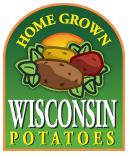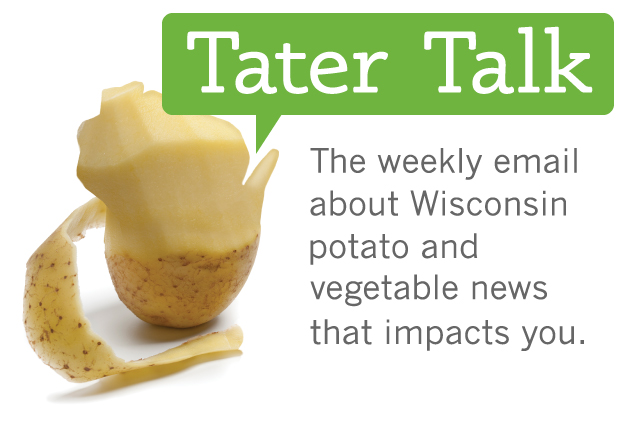Late Blight Update
Updates provided by Amanda J. Gevens, Chair, Associate Professor & Extension Specialist, UW-Madison, Dept. of Plant Pathology and Yi Wang, Assistant Professor & Extension Potato and Vegetable Production Specialist, UW-Madison, Dept. of Horticulture
This afternoon, Aug. 10 2020, late blight was confirmed on potato in Adams County, WI. The lesions, on leaves and stems, were found on very few plants in one isolated area. The pathogen was producing sporangia within the infected tissues. We will be working through the clonal lineage/strain type over the next day or so. While it’s hard to gauge the age of lesions, my estimate is that this infection is less than one week old. Only in the past 48 hours has weather been favorable for late blight. In the 5 days prior, moisture has been extremely low. Our Blitecast forecasting tool was accumulating less than 3 DSVs over the entirety of last week in central WI. Pop up storms and very high humidity under favorable temperatures will promote late blight. Removal or killing of infected plants (hot spot), and application of antisporulant fungicides in an infected field, and in fields surrounding is the best course of action to limit sporangial production, survival, and success in creating new infections.
Below, please find a link to the summary list of fungicides registered for late blight on potato in WI. Also, please find link to our commercial production guide for vegetables, below, for appropriate treatment information. Page 220 starts the section on fungicides for late blight control in potato for WI. https://cdn.shopify.com/s/files/1/0145/8808/4272/files/A3422-2020.pdf
To date, the closest late blight has been found in NC and far western Canada. Spores of the pathogen were detected in spore traps in MN last week, but at that time, no symptoms in the field. This season there have been very few cases of late blight in the US. In the earlier reports from southern states, the pathogen was of the US-23 clonal lineage type. This type is typically sensitive to phenylamide fungicide mefenoxam (ie: Ridomil).
As a reminder, the UW Plant Disease Diagnostic Clinic processes late blight samples (tomato and potato) free of charge. The clinic is still not able to receive ‘walk in’ samples and they must be mailed to the clinic. Info here: https://pddc.wisc.edu/. My lab will further characterize the clonal lineage or strain type (also no charge). Please contact me for further information or help in getting sample processed.

